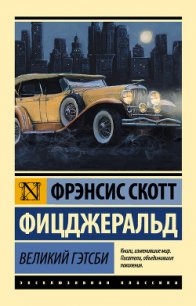Загадочная история Бенджамина Баттона / The Curious Case of Benjamin Button - Фицджеральд Френсис Скотт (книги бесплатно txt, fb2) 📗
The old man looked placidly from one to the other for a moment, and then suddenly spoke in a cracked and ancient voice.
“Are you my father?” he demanded.
Mr. Button and the nurse started violently.
“Because if you are,” went on the old man querulously, “I wish you’d get me out of this place – or, at least, get them to put a comfortable rocker in here.”
“Where in God’s name did you come from? Who are you?” burst out Mr. Button frantically.
“I can’t tell you exactly who I am,” replied the querulous whine, “because I’ve only been born a few hours – but my last name is certainly Button.”
“You lie! You’re an impostor!”
The old man turned wearily to the nurse.
“Nice way to welcome a new-born child,” he complained in a weak voice. “Tell him he’s wrong, why don’t you?”
“You’re wrong, Mr. Button,” said the nurse severely. “This is your child, and you’ll have to make the best of it. We’re going to ask you to take him home with you as soon as possible – sometime today.”
“Home?” repeated Mr. Button incredulously.
“Yes, we can’t have him here. We really can’t, you know?”
“I’m right glad of it,” whined the old man. “This is a fine place to keep a youngster of quiet tastes. With all this yelling and howling, I haven’t been able to get a wink of sleep. I asked for something to eat”-here his voice rose to a shrill note of protest-“and they brought me a bottle of milk!”
Mr. Button sank down upon a chair near his son and concealed his face in his hands.
“My heavens!” he murmured, in an ecstasy of horror. “What will people say? What must I do?”
“You’ll have to take him home,” insisted the nurse-“immediately!”
A grotesque picture formed itself with dreadful clarity before the eyes of the tortured man – a picture of himself walking through the crowded streets of the city with this appalling apparition stalking by his side.
“I can’t. I can’t,” he moaned.
People would stop to speak to him, and what was he going to say? He would have to introduce this septuagenarian: “This is my son, born early this morning.” And then the old man would gather his blanket around him and they would plod on, past the bustling stores, the slave market – for a dark instant Mr. Button wished passionately that his son was black – past the luxurious houses of the residential district, past the home for the aged…
“Come! Pull yourself together,” commanded the nurse.
“See here,” the old man announced suddenly, “if you think I’m going to walk home in this blanket, you’re entirely mistaken.”
“Babies always have blankets.”
With a malicious crackle the old man held up a small white swaddling garment.
“Look!” he quavered. “This is what they had ready for me.”
“Babies always wear those,” said the nurse primly.
“Well,” said the old man, “this baby’s not going to wear anything in about two minutes. This blanket itches. They might at least have given me a sheet.”
“Keep it on! Keep it on!” said Mr. Button hurriedly. He turned to the nurse. “What’ll I do?”
“Go down town and buy your son some clothes.”
Mr. Button’s son’s voice followed him down into the hall:
“And a cane, father. I want to have a cane.”
Mr. Button banged the outer door savagely…
II
“Good-morning,” Mr. Button said, nervously, to the clerk in the Chesapeake Dry Goods Company. “I want to buy some clothes for my child.”
“How old is your child, sir?”
“About six hours,” answered Mr. Button, without due consideration.
“Babies’ supply department in the rear.”
“Why, I don’t think – I’m not sure that’s what I want. It’s – he’s an unusually large-size child. Exceptionally – ah – large.”
“They have the largest child’s sizes.”
“Where is the boys’ department?” inquired Mr. Button, shifting his ground desperately. He felt that the clerk must surely scent his shameful secret.
“Right here.”
“Well-” He hesitated. The notion of dressing his son in men’s clothes was repugnant to him. If, say, he could only find a very large boy’s suit, he might cut off that long and awful beard, dye the white hair brown, and thus manage to conceal the worst, and to retain something of his own self-respect – not to mention his position in Baltimore society.
But a frantic inspection of the boys’ department revealed no suits to fit the new-born Button. He blamed the store, of course – in such cases it is the thing to blame the store.
“How old did you say that boy of yours was?” demanded the clerk curiously.
“He’s – sixteen.”
“Oh, I beg your pardon. I thought you said six hours. You’ll find the youths’ department in the next aisle.”
Mr. Button turned miserably away. Then he stopped, brightened, and pointed his finger toward a dressed dummy in the window display.
“There!” he exclaimed. “I’ll take that suit, out there on the dummy.”
The clerk stared.
“Why,” he protested, “that’s not a child’s suit. At least it is, but it’s for fancy dress. You could wear it yourself!”
“Wrap it up,” insisted his customer nervously. “That’s what I want.”
The astonished clerk obeyed.
Back at the hospital Mr. Button entered the nursery and almost threw the package at his son.
“Here’s your clothes,” he snapped out.
The old man untied the package and viewed the contents with a quizzical eye.
“They look sort of funny to me,” he complained, “I don’t want to be made a monkey of-”
“You’ve made a monkey of me!” retorted Mr. Button fiercely. “Never you mind how funny you look. Put them on – or I’ll – or I’ll spank you.”
He swallowed uneasily at the penultimate word, feeling nevertheless that it was the proper thing to say.
“All right, father” – this with a grotesque simulation of filial respect-“you’ve lived longer; you know best. Just as you say.”
As before, the sound of the word “father” caused Mr. Button to start violently.
“And hurry.”
“I’m hurrying, father.”
When his son was dressed Mr. Button regarded him with depression. The costume consisted of dotted socks, pink pants, and a belted blouse with a wide white collar. Over the latter waved the long whitish beard, drooping almost to the waist.
The effect was not good.
“Wait!”
Mr. Button seized a hospital shears and with three quick snaps amputated a large section of the beard. But even with this improvement the ensemble fell far short of perfection. The remaining brush of scraggly hair, the watery eyes, the ancient teeth, seemed oddly out of tone with the gayety of the costume. Mr. Button, however, was obdurate – he held out his hand.
“Come along!” he said sternly.
His son took the hand trustingly.
“What are you going to call me, dad?” he quavered as they walked from the nursery-“just ‘baby’ for a while? till you think of a better name?”
Mr. Button grunted.
“I don’t know,” he answered harshly. “I think we’ll call you Methuselah.”
III
Even after the new addition to the Button family had had his hair cut short and then dyed to a sparse unnatural black, had had his face shaved so close that it glistened, and had been attired in small-boy clothes made to order by a flabbergasted tailor, it was impossible for Button to ignore the fact that his son was a poor excuse for a first family baby. Despite his aged stoop, Benjamin Button – for it was by this name they called him instead of by the appropriate but invidious Methuselah – was five feet eight inches tall. His clothes did not conceal this, nor did the clipping and dyeing of his eyebrows disguise the fact that the eyes under – were faded and watery and tired. In fact, the baby-nurse who had been engaged in advance left the house after one look, in a state of considerable indignation.




